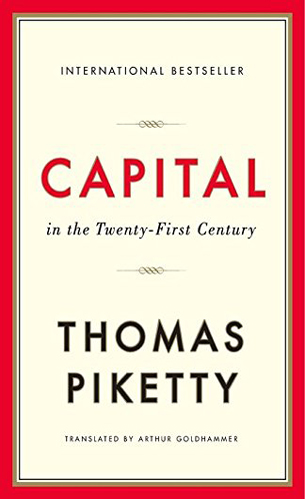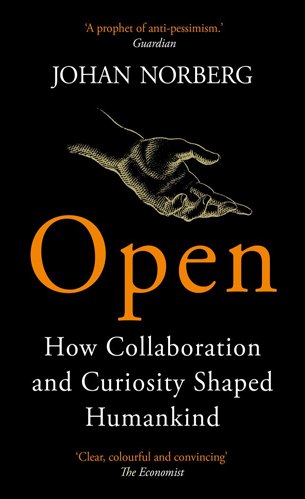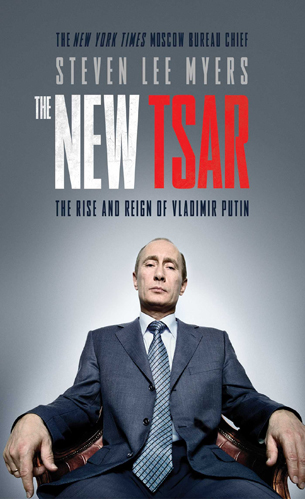Category
- Discounted Books
- English Book Bundles
- University Magazines
- சிறுவர்களுக்கான புத்தகங்கள்
- Children Books
- English Books
- Current Affairs
- Military & Intelligence
- Short Stories
- Fiction
- Poetry
- Environment & Nature
- Science
- Medicine
- Linguistics
- Atheism & Agnosticism
- (Auto)Biography & Memoir
- Business & Management
- Creativity
- Economics
- Education & Research
- Health & Nutrition
- History
- Humor
- Love & Relationships
- Parenting
- Personal Development
- Personal Finance
- Philosophy
- Politics
- War
- Psychology
- Religion & Spirituality
- Society & Culture
- Sports
- Travel & Adventure
- Technology & the Future
- True Crime
- Women Empowerment
- தமிழ் Books
- Book Bundles ( தமிழ் )
- சட்டம்
- இயற்கை
- கட்டுரை
- கணிதம்
- பயணக்குறிப்புகள்
- விவசாயம்
- அரசியல்
- ஆரோக்கியம்
- உளவியல்
- புனைவு
- காதல் மற்றும் உறவு
- சமூகவியல்
- சுயசரிதைகள் மற்றும் நினைவுகள்
- சுயமுன்னேற்றம்
- தத்துவஞானம்
- தொழில்நுட்பம் & எதிர்காலம்
- பொருளாதாரம்
- போர்
- பணம்
- மதம் & ஆன்மீகம்
- வணிகம் & மேலாண்மை
- வரலாறு
- விஞ்ஞானம் & பிரபல அறிவியல்
- விளையாட்டு
- சினிமா
- கவிதைகள்
- குழந்தை வளர்ப்பு
- குற்றம்
- மருத்துவம்
- மொழி
Product categories
- Children Books
- Discounted Books
- English Book Bundles
- English Books
- (Auto)Biography & Memoir
- Atheism & Agnosticism
- Business & Management
- Creativity
- Current Affairs
- Economics
- Education & Research
- Environment & Nature
- Fiction
- Health & Nutrition
- History
- Humor
- Linguistics
- Love & Relationships
- Medicine
- Military & Intelligence
- Parenting
- Personal Development
- Personal Finance
- Philosophy
- Poetry
- Politics
- Psychology
- Religion & Spirituality
- Science
- Short Stories
- Society & Culture
- Sports
- Technology & the Future
- Travel & Adventure
- True Crime
- War
- Women Empowerment
- University Magazines
- சிறுவர்களுக்கான புத்தகங்கள்
- தமிழ் Books
- Book Bundles ( தமிழ் )
- அரசியல்
- ஆரோக்கியம்
- இயற்கை
- உளவியல்
- கட்டுரை
- கணிதம்
- கவிதைகள்
- காதல் மற்றும் உறவு
- குற்றம்
- குழந்தை வளர்ப்பு
- சட்டம்
- சமூகவியல்
- சினிமா
- சுயசரிதைகள் மற்றும் நினைவுகள்
- சுயமுன்னேற்றம்
- தத்துவஞானம்
- தொழில்நுட்பம் & எதிர்காலம்
- பணம்
- பயணக்குறிப்புகள்
- புனைவு
- பொருளாதாரம்
- போர்
- மதம் & ஆன்மீகம்
- மருத்துவம்
- மொழி
- வணிகம் & மேலாண்மை
- வரலாறு
- விஞ்ஞானம் & பிரபல அறிவியல்
- விளையாட்டு
- விவசாயம்
- You cannot add "The Splendid and the Vile: A Saga of Churchill, Family and Defiance During the Blitz" to the cart because the product is out of stock.
Capital in the Twenty-First Century
Rs. 3,990.00

Thomas Piketty
- A New York Times #1 Bestseller
- An Amazon #1 Bestseller
- A Wall Street Journal #1 Bestseller
- A USA Today Bestseller
- A Sunday Times Bestseller
- A Guardian Best Book of the 21st Century
- Winner of the Financial Times and McKinsey Business Book of the Year Award 2014
- Winner of the British Academy Medal
- Finalist, National Book Critics Circle Award
“It seems safe to say that Capital in the Twenty-First Century, the magnum opus of the French economist Thomas Piketty, will be the most important economics book of the year―and maybe of the decade. Piketty, arguably the world’s leading expert on income and wealth inequality, does more than document the growing concentration of income in the hands of a small economic elite. He also makes a powerful case that we’re on the way back to ‘patrimonial capitalism,’ in which the commanding heights of the economy are dominated not just by wealth, but also by inherited wealth, in which birth matters more than effort and talent.”―Paul Krugman, New York Times
“In its magisterial sweep and ambition, Piketty’s latest work, Capital in the Twenty-First Century, is clearly modeled after Marx’s Das Kapital. But where Marx’s research was spotty, Piketty’s is prodigious. And where Marx foresaw capitalism’s collapse leading to a utopian proletariat paradise, Piketty sees a future of slow growth and Gilded Age disparities in which the wealthy–owners of capital–capture a steadily larger share of global wealth and income…Piketty’s Capital in the Twenty-First Century is an intellectual tour de force, a triumph of economic history over the theoretical, mathematical modeling that has come to dominate the economics profession in recent years. Piketty offers a timely and well-reasoned reminder that there is nothing inevitable about the dominance of human capital over financial capital, and that there is inherent in the dynamics of capitalism a natural and destabilizing tendency toward inequality of income, wealth and opportunity.”―Steven Pearlstein, Washington Post
“Magisterial… Bursting with ideas… This book is economics at its best.”―Philip Roscoe, Times Higher Education
“In Capital in the Twenty-first Century, Piketty sums up his research, tracing the history and pattern of economic inequality across a number of countries from the eighteenth century to the present, analyzing its causes, and evaluating some policy fixes. Spanning nearly 700 densely packed pages, it’s a big book in more than one sense of the word. Clearly written, ambitious in scope, rooted in economics but drawing on insights from related fields like history and sociology, Piketty’s Capital resembles nothing so much as an old-fashioned work of political economy by the likes of Adam Smith, David Ricardo, Karl Marx, or John Maynard Keynes. But what is particularly exciting about this book is that, due to advances in technology, Piketty is able to draw on data that not only spans a substantially longer historical time frame, but is also necessarily more complete and consistent than the records earlier theorists were forced to rely on. As a result, his analysis is significantly more comprehensive than those of his predecessors― and easily as persuasive… Capital is a consistently engrossing read, encompassing topics including the stunning comeback that inherited wealth has made in today’s advanced economies, the dubiousness of the economic theory that a worker’s wage is equal to his or her marginal productivity, the moral insidiousness of meritocratic justifications of inequality, and more. But the book’s major strength lies in Piketty’s ability to see the big picture. His original and rigorously well-documented insights into the deep structures of capitalism show us how the dynamics of capital accumulation have played out historically over the past three centuries, and how they’re likely to develop in the century to come… America’s twenty-first-century inequality crisis is, if anything, even more daunting and complex than the one we experienced a century ago. But as Piketty reminds us, the solutions to this problem are political, and they lie within our grasp. Should Americans choose to deploy those solutions, not only would we be doing the right thing, we’d be living up to our deepest traditions and most cherished ideals.”―Kathleen Geier, Washington Monthly
Out of stock
Notify me when stock available
What are the grand dynamics that drive the accumulation and distribution of capital? Questions about the long-term evolution of inequality, the concentration of wealth, and the prospects for economic growth lie at the heart of political economy. But satisfactory answers have been hard to find for lack of adequate data and clear guiding theories. In Capital in the Twenty-First Century, Thomas Piketty analyzes a unique collection of data from twenty countries, ranging as far back as the eighteenth century, to uncover key economic and social patterns. His findings will transform debate and set the agenda for the next generation of thought about wealth and inequality.
Piketty shows that modern economic growth and the diffusion of knowledge have allowed us to avoid inequalities on the apocalyptic scale predicted by Karl Marx. But we have not modified the deep structures of capital and inequality as much as we thought in the optimistic decades following World War II. The main driver of inequality―the tendency of returns on capital to exceed the rate of economic growth―today threatens to generate extreme inequalities that stir discontent and undermine democratic values. But economic trends are not acts of God. Political action has curbed dangerous inequalities in the past, Piketty says, and may do so again.
A work of extraordinary ambition, originality, and rigor, Capital in the Twenty-First Century reorients our understanding of economic history and confronts us with sobering lessons for today.
About the Author
Thomas Piketty (French: [tɔˈma pikɛˈti]; born on 7 May 1971) is a French economist who works on wealth and income inequality. He is a professor (directeur d’études) at the École des hautes études en sciences sociales (EHESS), professor at the Paris School of Economics and Centennial professor at the London School of Economics new International Inequalities Institute.
He is the author of the best-selling book Capital in the Twenty-First Century (2013), which emphasises the themes of his work on wealth concentrations and distribution over the past 250 years. The book argues that the rate of capital return in developed countries is persistently greater than the rate of economic growth, and that this will cause wealth inequality to increase in the future. He considers that to be a problem, and to address it, he proposes redistribution through a progressive global tax on wealth.
Book Specifications
Title: Capital in the Twenty-First Century
Author: Thomas Piketty
Language: English
Binding: Paperback
Pages: 816
Weight: 680g
Published Year: 2014
Publisher: Harvard University Press
ISBN: 978-0674980259
Dimensions: 14 x 1.5 x 21.6 cm
Print size: Please feel free to drop us a message.
Related products
-
The Man Who Created the Middle East: A Story of Empire, Conflict and the Sykes-Picot Agreement
Rs. 2,990.00or 3 X Rs.996.67 with Read more
Read moreChristopher Simon Sykes
At the age of only 36, Sir Mark Sykes was signatory to the Sykes-Picot agreement, one of the most reviled treaties of modern times. A century later, Christopher Sykes’ lively biography of his grandfather reassesses his life and work, and the political instability and violence in the Middle East attributed to it.
The Sykes-Picot agreement was a secret pact drawn up in May 1916 between the French and the British, to divide the collapsing Ottoman Empire in the event of an allied victory in the First World War. Agreed without any Arab involvement, it negated an earlier guarantee of independence to the Arabs made by the British. Controversy has raged around it ever since.
Sir Mark Sykes was not, however, a blimpish, ignorant Englishman. A passionate traveller, explorer and writer, his life was filled with adventure. From a difficult, lonely childhood in Yorkshire and an early life spent in Egypt, India, Mexico, the Arabian desert, all the while reading deeply and learning languages, Sykes published his first book about his travels through Turkey aged only twenty. After the Boer War, he returned to map areas of the Ottoman Empire no cartographer had yet visited. He was a talented cartoonist, excellent mimic and amateur actor, gifts that ensured that when elected to parliament a full House of Commons would assemble to listen to his speeches.
During the First World War, Sykes was appointed to Kitchener’s staff, became Political Secretary to the War Cabinet and a member of the Committee set up to consider the future of Asiatic Turkey, where he was thirty years younger than any of the other members. This search would dominate the rest of his life. He was unrelenting in his pursuit of peace and worked himself to death to find it, a victim of both exhaustion and the Spanish Flu.
Written largely based on the previously undisclosed family letters and illustrated with Sykes’ cartoons, this sad story of an experienced, knowledgeable, good-humoured and generous man once considered the ideal diplomat for finding a peaceful solution continues to reverberate across the world today.
-
Open: How Collaboration and Curiosity Shaped Humankind
Rs. 3,690.00Original price was: Rs. 3,690.00.Rs. 2,890.00Current price is: Rs. 2,890.00.or 3 X Rs.963.33 with Read more
Read moreJohan Norberg
- AN ECONOMIST BOOK OF THE YEAR
“No person or society is smart enough or wise enough or noble enough to solve the wicked problems of life by themselves. With clarity and grace, Johan Norberg reminds us that openness to things and ideas from others is the only route to well-being..” –Steven Pinker, author, Enlightenment Now
“If we are to recover from the pandemic of 2020, the world needs openness more than ever: open minds, open hearts, open communications, open markets. Johan Norberg’s superb book demonstrates, with hundreds of examples, how openness has been the key to the success of our species over 10,000 years and is the secret of prosperity and peace today.” –Matt Ridley, author, The Rational Optimist
“Johan Norberg has a great story to tell: how, throughout history, open societies have always closed down, but never for good. The tension between closed and open, between trading and tribalism drives both progress and reaction. Why are the virtues and benefits of openness always under threat? We can’t live without it, yet too often it seems that we can’t live with it either. Norberg has a powerful argument to give us insight and hope that man’s curiosity and imagination is unstoppable.” –Margaret Heffernan, author, Beyond Measure
“Norberg reminds us that every great civilization has been destroyed by the end of openness. His essential book, then, is a timely reminder that the fate of our civilization rests on a defense of openness. Strongly recommended.” –Andrew Keen, author, The Internet Is Not The Answer
Clear, colourful and convincing, marshalling evidence from a range of eras and civilisations. […] The author is often amusing as well as illuminating. ― The Economist
Norberg has a strong case and he makes it with energy and charm. A pertinent book for grumpy times. ― The Times on Progress
-
The Prize: The Epic Quest for Oil, Money & Power
Rs. 6,790.00Original price was: Rs. 6,790.00.Rs. 5,990.00Current price is: Rs. 5,990.00.or 3 X Rs.1,996.67 with Read more
Read moreDaniel Yergin
Winner of the Pulitzer Prize and hailed as “the best history of oil ever written” by Business Week, Daniel Yergin’s “spellbinding…irresistible” (The New York Times) account of the global pursuit of oil, money, and power addresses the ongoing energy crisis.
“Splendid and epic history of oil…. The story is brilliantly told…with its remarkable cast of characters.” — The Wall Street Journal
“Impassioned and riveting…only in the great epics of Homer will readers regularly run into a comparable string of larger-than-life swashbucklers and statesmen, heroes and villains.” — San Francisco Examiner
“A masterly narrative…The Prize portrays the interweaving of national and corporate interests, the conflicts and stratagems, the miscalculations, the follies, and the ironies.” — James Schlesinger, former U.S. Secretary of Defense and U.S. Secretary of Energy
“Spellbinding…irresistible…monumental…must be read to understand the first thing about the role of oil in modern history.” — The New York Times
-
Jesus Lived in India: His Unknown Life Before and After the Crucifixion
Rs. 1,690.00or 3 X Rs.563.33 with Read more
Read moreHolger Kersten
Jesus Lived In India is a book by theologian, Holger Kersten, which presents the connection that Jesus had with India. It cites evidence that Jesus lived in India for a large part of his life after the crucifixion and died there at old age. The book asks its readers the question of why Christianity chose to ignore it’s connections with the religions of the east.
Historical sites traced back Jesus to Israel, the Middle East, Afghanistan, and India. According to this book, this had been found out as a result of investigative research. Many startling conclusions have been presented by Holger Kersten.
Some of the allusions made by this book include statements that Jesus followed the ancient Silk Road to India and studied Buddhism there, adopting its tenets in order to become a master of spirituality. This book states that he survived the crucifixion, and after that returned to India where he finally died in Jammu & Kashmir.
Key Features:
- The book is based on research by Holger Kersten.
- It was not well-received by the mainstream scholarship.
- Jesus In India was originally a treatise written by Mirza Ghulam Ahmad.
-
The New Tsar: The Rise and Reign of Vladimir Putin
Rs. 2,690.00or 3 X Rs.896.67 with Read more
Read moreSteven Lee Myers
“Steven Lee Myers’s The New Tsar is not the first biography of Putin, but it is the strongest to date. Judicious and comprehensive, it pulls back the veil… from one of the world’s most secretive leaders. What is most striking, given the aura of steely consistency that Putin cultivates, is how he has changed over the years…. The great strength of Myers’s book is the way it shows how chance events and Putin’s own degeneration gradually cleared the path to the Ukraine crisis… Putin emerges as neither a KGB automaton, nor the embodiment of Russian historical traditions, nor an innocent victim of Western provocations and NATO’s hubris, but rather as a flawed individual who made his own choices at crucial moments and thereby shaped history.” —Daniel Treisman, The Washington Post
“What Steven Lee Myers gets so right in The New Tsar, his comprehensive new biography — the most informative and extensive so far in English — is that at bottom Putin simply feels that he’s the last one standing between order and chaos… What Myers offers is the portrait of a man swinging from crisis to crisis with one goal: projecting strength… A knowledgeable and thorough biography… Putin himself now represents the chaos he so abhors — the chaos that will surely come in his wake.” —Gal Beckerman, The New York Times Book Review
“Combining skilled story telling, psychological examination and political investigation, Steven Lee Myers succeeds brilliantly in this biography of Vladimir Putin. Explaining the dangers that Putin’s Russia may and does pose, Myers effortlessly and expertly guides the reader through the complexities of the Russian Byzantine governing style and the country’s politics and identity. In the end, the book provides one of the most comprehensive answers to a puzzling question: Despite all the changes that Russia has gone through during communism and post-communism, why is it still an empire of the tsar?” —Nina Khrushcheva
“Personalities determine history as much as geography, and there is no personality who has had such a pivotal effect on 21st century Europe as much as Vladimir Putin. The New Tsar is a riveting, immensely detailed biography of Putin that explains in full-bodied, almost Shakespearean fashion why he acts the way he does.” –Robert D. Kaplan
“The reptilian, poker-faced former KGB agent, now Russian president seemingly for life, earns a fair, engaging treatment in the hands of New York Times journalist Myers… [who] clearly knows his material and primary subject… Putin used the perks of power to create a complex system of cronyism and nepotism. Myers shows how Putin convinced everyone that this way of operating was part of the Russian soul and how he perpetuated it through an archaic form of Russian corruption… Myers astutely notes how Putin’s speeches increasingly harkened back to the worst period of the Cold War era’s dictates by Soviet strongmen… A highly effective portrait of a frighteningly powerful autocrat.” –Kirkus (starred review)
-
Seven Pillars of Wisdom
Rs. 3,390.00Original price was: Rs. 3,390.00.Rs. 2,390.00Current price is: Rs. 2,390.00.or 3 X Rs.796.67 with Read more
Read moreT. E. Lawrence
Seven Pillars of Wisdom is the autobiographical account of T.E. Lawrence – also known as ‘Lawrence of Arabia’ – of his service in the Arab Revolt during the First World War, published in Penguin Modern Classics. Although ‘continually and bitterly ashamed’ that the Arabs had risen in revolt against the Turks as a result of fraudulent British promises of self-rule, Lawrence led them in a triumphant campaign that revolutionized the art of war. Seven Pillars of Wisdom recreates epic events with extraordinary vividness.
‘Round this tent-pole of a military chronicle, Lawrence has hung an unexampled fabric of portraits, descriptions, philosophies, emotions, adventures, dreams’ — E. M. Forster
‘I am not much of a hero-worshipper, but I could have followed T.E. Lawrence over the edge of the world’ — John Buchan, author of The Thirty-Nine Steps
-
The Invention of Surgery: A History of Modern Medicine: From the Renaissance to the Implant Revolution
Rs. 2,990.00Original price was: Rs. 2,990.00.Rs. 2,690.00Current price is: Rs. 2,690.00.or 3 X Rs.896.67 with Read more
Read moreDr. David Schneider
“Brace yourself! The Invention of Surgery is a globetrotting historical adventure, told from the inside of the operating room. Through a series of colorful, bizarre and, at times, stomach-churning stories, Dr. Schneider reveals how the human, messy side of surgical history adds up to the wondrous advances we see today. This is medical writing at its most exhilarating.”
– Michael Paul Mason, author of Head Cases: Stories of Brain Injury and Its Aftermath“Comprehensively researched, deftly told, and radiating both intellect and passion, The Invention of Surgery is essential reading for anyone interested not only in the history but also in the future of medicine. This book is a labor of love, and it shows.”
– Frank Huyler, author of The Blood of Strangers: Stories from Emergency Medicine“Rampaging through surgery’s history, David Schneider’s unique take on its heroes and their achievements is cut with poignant, pithy stories from his own experience of repairing our bodies. He celebrates the audacity of putting something foreign inside of us, ruminates on its current costs and ethics, and asks us to join him on a fascinating ride into the future of implants.”
– Helen Bynum PhD, author of Spitting Blood: The History of Tuberculosis“Bold and compelling… Uniformly excellent, and often wryly amusing.“– The Wall Street Journal
“A history of surgery that is informative, entertaining, and highly readable.” –Library Journal
-
Samsung Rising: Inside the Secretive Company Conquering Tech
Rs. 3,490.00Original price was: Rs. 3,490.00.Rs. 2,990.00Current price is: Rs. 2,990.00.or 3 X Rs.996.67 with Read more
Read moreGeoffrey Cain
- Financial Times and McKinsey Business Book of the Year Nominee for Longlist (2020)
‘Shines an incisive and entertaining light into the secretive world of the South Korean technology giant shaping our digital lives in ways we probably can’t imagine‘ — Brad Stone, author of Amazon Unbound
“Samsung Rising reads like a dynastic thriller, rolling through three generations of family intrigue, embezzlement, bribery, corruption, prostitution and other bad behavior. . . . Wonderfully informative.”—The Wall Street Journal
“A brisk, balanced telling of the Samsung story.”—The New York Times Book Review
“Cain captures the drama of Samsung. . . . He pulls no punches, touching raw nerves of rivalries and repression and clashing egos in an account that’s unavoidably murky at times, but riveting current history.”—Forbes
“[A] riveting story . . . one of entrepreneurial derring-do and excruciating work habits mixed with scandals, vendettas and political intrigue.”—The Economist
“An extraordinary work of narrative business reportage . . . With the flair of a novelist, Geoffrey Cain tells the story of Samsung’s meteoric rise.”—Robert S. Boynton, author of The New New Journalism and The Invitation-Only Zone
-
Fallen Leaves: Last Words on Life, Love, War, and God
Rs. 2,790.00Original price was: Rs. 2,790.00.Rs. 2,290.00Current price is: Rs. 2,290.00.or 3 X Rs.763.33 with Read more
Read moreWill Durant
Praised as a “revelatory” book by The Wall Street Journal, this is the last and most personal work of Pulitzer Prize–winning author and historian Will Durant, discovered thirty-two years after his death.
“Fallen Leaves is in some ways a slight book. But it is also a revelatory one. Most of Durant’s work is about the thoughts and actions of others. Fallen Leaves is very much about the thoughts of Will durant concerning—well, almost everything. You’ll find short essays on childhood, old age, death, war, politics, capitalisn, art, sex, God and morality. … Above all, Fallen Leaves is a portrait of a sensibility. … Durant was a remarkable specimen of that nearly extinct species, a civilized liberal of wide learning and even wider sympathy for the fundamentals of human aspiration.” ― The Wall Street Journal
“Short but persuasive commentaries on a diversity of topics from a respected scholar of humanity.” ― Kirkus Reviews
“Some passages, such as his observations on youth and middle age, are personal and specific, while others, such as his ruminations on the existence of God, border on philosophy. . . . [And others] still carry a beneficial sting, such as his thoughts on war and nationalism and his plea for racial harmony (Durant’s civil rights advocacy dated back to 1914). . . . a thought-provoking array of opinions.” ― Publishers Weekly
“Some of his musings are provocative, even outrageous…this is a work that demands we think, and it is a worthy conclusion to a long and distinguished career.” ― Booklist
-
Guns, Germs, and Steel: The Fates of Human Societies
Rs. 2,990.00or 3 X Rs.996.67 with Read more
Read moreJared Diamond
- New York Times Bestseller
- Pulitzer Prize for General Nonfiction (1998)
- Royal Society Science Book Prize for General Prize (1998)
- California Book Award for Nonfiction (Gold) (1997)
- Puddly Award for History (2001)
- Phi Beta Kappa Award in Science (1997)
‘A book of big questions, and big answers‘ Yuval Noah Harari, bestselling author of Sapiens
“Artful, informative, and delightful…. There is nothing like a radically new angle of vision for bringing out unsuspected dimensions of a subject, and that is what Jared Diamond has done.” ― William H. McNeil, New York Review of Books
“An ambitious, highly important book.” ― James Shreeve, New York Times Book Review
“A book of remarkable scope, a history of the world in less than 500 pages which succeeds admirably, where so many others have failed, in analyzing some of the basic workings of culture process…. One of the most important and readable works on the human past published in recent years.” ― Colin Renfrew, Nature
“The scope and the explanatory power of this book are astounding.”
― The New Yorker“No scientist brings more experience from the laboratory and field, none thinks more deeply about social issues or addresses them with greater clarity, than Jared Diamond as illustrated by Guns, Germs, and Steel. In this remarkably readable book he shows how history and biology can enrich one another to produce a deeper understanding of the human condition.” ― Edward O. Wilson, Pellegrino University Professor, Harvard University
“Serious, groundbreaking biological studies of human history only seem to come along once every generation or so. . . . Now [Guns, Germs, and Steel] must be added to their select number. . . . Diamond meshes technological mastery with historical sweep, anecdotal delight with broad conceptual vision, and command of sources with creative leaps. No finer work of its kind has been published this year, or for many past.” ― Martin Sieff, Washington Times
“[Diamond] is broadly erudite, writes in a style that pleasantly expresses scientific concepts in vernacular American English, and deals almost exclusively in questions that should interest everyone concerned about how humanity has developed. . . . [He] has done us all a great favor by supplying a rock-solid alternative to the racist answer. . . . A wonderfully interesting book.” ― Alfred W. Crosby, Los Angeles Times
“An epochal work. Diamond has written a summary of human history that can be accounted, for the time being, as Darwinian in its authority.” ― Thomas M. Disch, The New Leader














